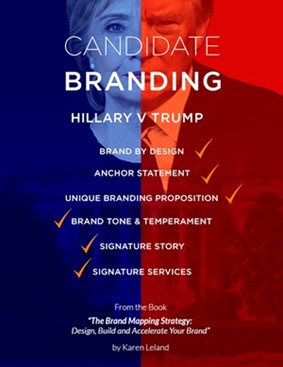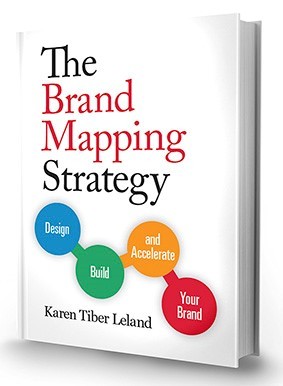Online Reputation Management: What You Should Know

What is ORM?
ORM, or online reputation management, is the practice of using various strategies to help influence the public perception of an individual, brand, or business online. Obviously, if you, an individual, brand, or business, have genuinely done something wrong, then reputations should be damaged, and appropriate action should be taken, as covering things up can get you in a lot of trouble. However, if a person or business is under attack when they have done nothing wrong, for example, a competitor or jealous individual, this can have hugely negative consequences. This is where online reputation management can be used to push negative online content off of the first page of search engine results. It is hard to completely remove something from the internet, so managing your online appearances and presence can help to reduce the number of people who interact with negative content.
Who is it for?
Online reputation management is typically used by big brands, businesses, celebrities, or entities whose success can depend on what is online. One of the most common types is celebrity reputation management, which helps to put positive content onto the internet in order to make sure these are what comes up in search engine results when the name is searched.
Technically, anyone can use online reputation management to monitor and manage their online presence, and there are different levels and specialisms depending on how influential you or your brand is.
You can work towards managing your reputation yourself or enlist the services of a professional company. Typically, the average person will manage their online reputation much more simply than a large brand or celebrity by responding to reviews and comments, both positive and negative, and managing feedback. Many people trust reviews that are left online and will make decisions about individuals, companies, or services based on the reviews and ratings they see when they search the name in a search engine. Knowing when and how to respond to comments and reviews is just one of the many skills and methods involved in online reputation management. It becomes harder to manage your online reputation when you are more well-known or influential, or the challenges you are facing are increasing. You may then require assistance. There will be different factors to consider for this and various questions to ask yourself. These include:
- Do you have time to generate and publish the content that is needed to push negative articles or search results to the bottom of result lists? Positive content that is high in keywords and other SEO techniques need to be created and published frequently. One great way to do this is by writing a blog, but you yourself may not have the time or skills to do this.
- Can you write to a high level to create effective and engaging content that does the job it is meant to do? Including important keywords in your content will help it pop up higher on search engine results, and it is obviously important to make sure it is grammatically correct and well-written, as is it associated with you.
- Are you technologically savvy, with a good understanding of techniques such as SEO? As well as SEO, you will need to manage a multitude of sites and social media platforms. Understanding how to build a good website is vital, and you may need some assistance with this task.
- How large is the reputational problem you are dealing with? It is some small comments, reviews, or a few unwanted images, or is it something much bigger?
When considering managing your online reputation, find out what your current online presence looks like to an outsider. Searching various spellings of your name, or the name of your company or brand will bring up the currently most popular search results. Look through them and see if they present you in the way you wish. It is also a good idea to set up Google Alerts with various phrases so that you are constantly aware of any new material that is being created. This can help you save time, as you need to monitor the internet and be aware of what is appearing. Furthermore, you will need to learn when it is best to respond to comments or reviews, and when it should be left alone, as sometimes replying can push the comment further up search results, which is the opposite of what you are trying to achieve.
How does it work?
There are several methods and techniques involved in online reputation management. Generally, the aim is to push down negative content and get it off the first page of search engine results so that fewer people see it. Research has shown that around 95% of people only look at the first page of results when they Google something. The techniques used will vary depending on the client. For example, managing the online reputation of a celebrity is a big challenge because there is so much content being generated about them from different sources. These include news organizations and publications, social media, websites, and fan forums. If a publication is well known, then any information they publish will appear high up on SERPs, resulting in more people clicking on them.
There are different ORM methods that are utilized depending on the client and the situation, but some general methods include:
- Generating new content frequently. The more positive content you create, the more likely it is to be engaged with and land higher up in search results. The whole idea is to flood results with content that is positive in order to push negative articles further down. This is where using an agency to manage your online reputation can be helpful, as you may not have the time, means or ability to create the volume and frequency of online content that is required.
- Maintaining a positive online presence. Having a good website is one way of doing this and is especially useful if you, your brand, or business relies on a website over other platforms such as social media. A high-quality website will help it to appear higher up in search results, will be informative, grammatically, and technologically correct, with links and an easy to navigate layout. Writing a blog that you regularly update, interacting with reviews and comments, and encouraging people to leave reviews will help build your site. Furthermore, having your or your brand or business’s name in the website URL is important as it can help the site rank high for keyword content.
- Claiming online properties. This involves making accounts and profiles on the various forms of social media, as well as a Wikipedia page and domain name for your website. These are popular and established platforms and websites to have accounts on, and are therefore more likely to appear on the first page of a search engine result. Furthermore, by having accounts on these platforms and sites, it is harder for people to create fake accounts and pretend to be the individual or brand.
- Creating links. Links on your website or other accounts need to be functioning and up to date. Linking to other webpages that you want readers to see can help the flow of internet traffic between the two sites, as well as giving credibility to the receiving website. Links to your socials should be on your website and vice versa.
Jobs
If you would like to work in online reputation management, it is generally seen as a type of digital marketing. There are plenty of digital marketing agencies all over the world, and many offer online reputation management services. Other services they may offer include content creation, SEO, and website design. You need to have a good level of understanding of digital techniques such as SEO and have a great eye for detail. There are many skills you need to succeed in digital marketing, and online reputation management is a great way to combine many of them, such as SEO and content creation.
Managing your own reputation is a good way to save money, but it can be time-consuming, and you may not have the skills required to complete the job effectively. As previously mentioned, there are many factors to take into consideration that will affect whether you choose to do it yourself or work with an agency that can manage it for you. If you or your brand or business have been negatively impacted when you have genuinely done nothing wrong, ORM can help to rebuild your reputation online.


 Below is an examination of both candidates’ personal branding successes, challenges and resulting lessons for us all in six specific areas. The success of any brand — in business, politics or otherwise — boils down to how the brand performs across these six key dimensions. Each dimension, including exactly how each candidate fared therein as well as the correlated Personal Brand Takeaways, can help other enterprising professionals achieve in kind.
Below is an examination of both candidates’ personal branding successes, challenges and resulting lessons for us all in six specific areas. The success of any brand — in business, politics or otherwise — boils down to how the brand performs across these six key dimensions. Each dimension, including exactly how each candidate fared therein as well as the correlated Personal Brand Takeaways, can help other enterprising professionals achieve in kind. 2. Anchor Statement. What is the go-to description of who you are and what you do? This is sometimes referred to as an elevator pitch.
2. Anchor Statement. What is the go-to description of who you are and what you do? This is sometimes referred to as an elevator pitch. Karen Leland is CEO of Sterling Marketing Group, a branding and marketing strategy and implementation firm helping CEO’s, businesses and teams develop stronger personal and business brands. Clients include AT&T, American Express, Marriott Hotels, Apple Computer, LinkedIn and Twitter. She is the best-selling author of 9 books, including her most recent title,
Karen Leland is CEO of Sterling Marketing Group, a branding and marketing strategy and implementation firm helping CEO’s, businesses and teams develop stronger personal and business brands. Clients include AT&T, American Express, Marriott Hotels, Apple Computer, LinkedIn and Twitter. She is the best-selling author of 9 books, including her most recent title,  Dan Antonelli has over 20 years’ experience in small business logo design and marketing strategy. As CEO and Creative Director of Graphic DSigns, Inc., The Small Business Advertising Agency®, he’s helped nearly a thousand individual brands recognize the better side of business. The definitive industry expert on logo design for small business, Dan has authored three books on the subject, including his latest ‘Building a Big Small Business Brand’, and established his agency as the premier brand-building agency for small businesses nationwide.
Dan Antonelli has over 20 years’ experience in small business logo design and marketing strategy. As CEO and Creative Director of Graphic DSigns, Inc., The Small Business Advertising Agency®, he’s helped nearly a thousand individual brands recognize the better side of business. The definitive industry expert on logo design for small business, Dan has authored three books on the subject, including his latest ‘Building a Big Small Business Brand’, and established his agency as the premier brand-building agency for small businesses nationwide. Jeffrey Gitomer is the author of The Sales Bible, Customer Satisfaction is Worthless Customer Loyalty is Priceless, The Little Red Book of Selling, The Little Red Book of Sales Answers, The Little Black Book of Connections, The Little Gold Book of YES! Attitude, The Little Green Book of Getting Your Way, The Little Platinum Book of Cha-Ching, The Little Teal Book of Trust, The Little Book of Leadership, and Social BOOM! His website,
Jeffrey Gitomer is the author of The Sales Bible, Customer Satisfaction is Worthless Customer Loyalty is Priceless, The Little Red Book of Selling, The Little Red Book of Sales Answers, The Little Black Book of Connections, The Little Gold Book of YES! Attitude, The Little Green Book of Getting Your Way, The Little Platinum Book of Cha-Ching, The Little Teal Book of Trust, The Little Book of Leadership, and Social BOOM! His website,